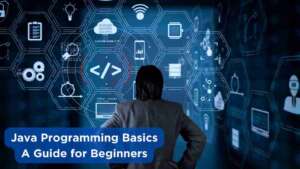The AI time is right here, and it changes how we study, work, and interact. From automated recruitment systems to AI-controlled trading solutions, technology is no longer limited to IT departments and is now integrated into all industries, including healthcare, finance, marketing, education, and production. For those students who are preparing to enter the working group and job seekers to stand out in competitive markets, this is not an alternative to gaining the necessary technical skills; This is important.
Employers now require candidates who may be suitable for developing technology, analyzing data, working with digital equipment, and seriously considering AI-operated procedures. Whether you aim to work in technology or a non-technical field, the construction of these skills will help you remain relevant, prepared for the future, and employed.
This article examines the top technical skills each student and job seeker must master in the AI-operated world, to help you develop effectively with practical tips and resources.
Digital Literacy: Foundation of Technical Capacity

Before mastering advanced equipment, students and job seekers must be digitally literate. Digital literacy is just outside of using smartphones or social media; This involves understanding how to navigate digital platforms, protect personal information, and seriously evaluate information.
Why It Matters:
Employers hope that candidates will work effectively with cloud platforms, online collaboration equipment, and digital documentation. Strong digital literacy ensures that you can quickly adapt to almost any workplace technique.
How to Build It:
- Learn to apply Google Workspace or Microsoft 365 effectively.
- Avoid yourself with cloud storage systems like Google Drive and Dropbox.
- Practice the usage of communication devices along with Slack, Zoom, or Microsoft Teams.
- Be aware of the basics of cybersecurity to shield sensitive information.
Building a Strong Digital Presence
In the AI era, your online appearance is a part of the resume that restarts. Employers frequently take a look at LinkedIn profiles, portfolios, and man or woman websites earlier than making decisions.
Why It Matters:
An expert digital appearance displays your ability, reliability, and exuberance to analyze.
How to Build It:
- Update your LinkedIn profile with initiatives, achievements, and certificates.
- Do your paintings with systems that include GitHub, Behance, or Medium.
- Use apps such as a resume maker app to design a professional resume that stands out in the Applicant Tracking System (ATS)
Data Literacy and Analytical Thinking

In the AI era data is new oil, and employers value candidates who can read, interpret, and act on data insights. Computer knowledge involves collecting, analyzing, and interpreting data to determine.
Why It Matters:
Whether you are in marketing, HR, or operations, as a data service, you facilitate the recommendations and measure success correctly.
How to Build It:
- Learn tools like Microsoft Excel.
- Practice basic data visualization techniques.
- Take courses on the interpretation of data and data for non-technical roles
Cloud Computing Skills
Shooting technology today provides strength to many commercial functions, which makes the cloud platform for job seekers and how they work. Even if you do not need to become an engineer, you will know that and cloud storage system with SAAS (Software as a Service) gives you a competitive advantage.
Why It Matters:
Many companies transfer to cloud-based workflows for collaboration and storage, and knowing how to work in this environment improves productivity.
How to Build It:
- Learn the basics of AWS, Google Cloud, or Microsoft Azure through a free advent path
- Use collaborative appliances such as Trailo, Asana, or Notes, which depend on shooting technology
Cybersecurity Awareness
With the growth in cyber threats, college students and job seekers ought to prioritize cybersecurity consciousness. Employers are searching out people who can comply with the satisfactory practices for the security of the company’s data.
Why It Matters:
A single error – for example, clicking Fishing -e Post – can lead to data violations. Being cyber security conscious makes you a more reliable staff member.
How to Build It:
- Learn about strong password construction, two-factor authentication, and secure surfing
- Take a Free cybersecurity course from Platforms such as Cybrary or Coursera
Coding and Programming Basics

Even if you no longer pursue a software improvement profession, studying the basics of coding-like HTML, CSS, Python, or JavaScript, can be a game-changer.
Why It Matters:
Basic programming improves the skills to solve knowledge problems and helps you understand how apps, websites, and automation equipment work.
How to Build It:
- Start with a beginner friend
- Work with simple projects, such as creating an individual portfolio page
Adaptability with AI Productivity Tools
Job seekers who know how to benefit from AI-operated equipment are more efficient and resourceful. From writing help to design, automation, and project management, AI changes how work is done.
Why It Matters:
Employers value candidates who can perform smart work, automate regular tasks, and focus on high-value work.
Examples of Tools to Explore:
- Grammar and Jasper AI – To write and edit
- Notion AI – For note-taking and summarizing
- Zapier – To automate repetitive workflow
- Canva AI – For fast and professional graphic design
Communication and Collaboration in Digital Fields
In a hybrid or remote world, digital verbal exchange competencies are more crucial than ever. Students and job seekers need to know how to collaborate in virtual fields.
Why It Matters:
Effective online communication ensures even teamwork, especially in global companies where distance cooperation is standard.
How to Build It:
- Practice writing a card and a professional e-post
- Take proper knowledge of tools like Slack, Microsoft Teams, and Zoom.
- Virtual Meeting etiquette and external presentation skills Leather
Basic Understanding of Artificial Intelligence and Machine Learning

Even in case you do not pursue a profession as a computer researcher, it’s crucial to understand the basic knowledge of AI and machine learning (ML). Companies use AI for customer support, data grid analysis, marketing automation, and operations, so getting to know the standards will make you a valuable asset.
Why It Matters:
Understanding how AI tools work helps you work effectively with technical teams and use these devices responsibly in non-technical roles. It also prepares you for industries where AI becomes ideal.
How to Build It:
- Take initial friendly courses at Coursera, EDX, X, or Udemy
- Read Simplified Guide or Listen to Podcast about AI in business.
- Use ChatGPT or Canva AI tools with AI-based platforms
Lifelong Learning Mindset
Finally, the most vital capabilities within the AI technology are the desire to learn constantly. Technology will hold to growth, and those who’re adaptable and curious will thrive.
How to Cultivate It:
- View weekly time to read technological blogs or take a micro-gourd
- Follow considerate leaders in your industry on LinkedIn or Twitter.
- Regular webinars, digital conferences, and workshops attended
Conclusions:
The AI time offers enormous opportunities for students and job seekers who embrace and keep learning technology. By mastering the necessary technical skills – digital literacy, data analysis, cloud computing, and AI tools – you not only remain relevant, but also keep in position as a valuable property for employers.
Start the short: Learn a new tool, create a mini project, or improve your digital profile. Over time, these elderly steps will provide you with competitive management in a technically driven labor market. Remember that success in the AI era is not entirely dependent on technical coping – it depends on the ability to merge human creativity with adaptability, curiosity, and technological innovation.
FAQs
Q1. My job isn’t in the tech field. Do I still require technical capabilities?
Absolutely. Nowadays, nearly every job employs digital tools and AI in some manner. Understanding the basics will keep you in the game and ahead of technological advancements.
Q2. Where should I start with my technical skills?
Begin with the basics of digital technology. Learn how to use tools like Google Drive and Zoom, and how to stay secure online. This is the base of everything else.
Q3. Do I have to study coding to be employed?
Not necessarily. However, knowing a little bit about HTML, Python, or JavaScript will significantly enhance your ability to solve problems and help open up more possibilities.
Q4. What can I do to increase my online presence to aid in my job search?
Keep your LinkedIn profile updated and share your work on platforms like GitHub or Behance. Ensure your resume is straightforward to read.
Q5. Which AI tools help to master?
Explore tools such as Grammarly for writing, Canva AI for design, and Notion AI for organizing notes. These tools make your everyday tasks quicker and more efficient.






Leave a Comment